Austin Peay professors bring diverse science lessons to Governor’s School of Computational Physics
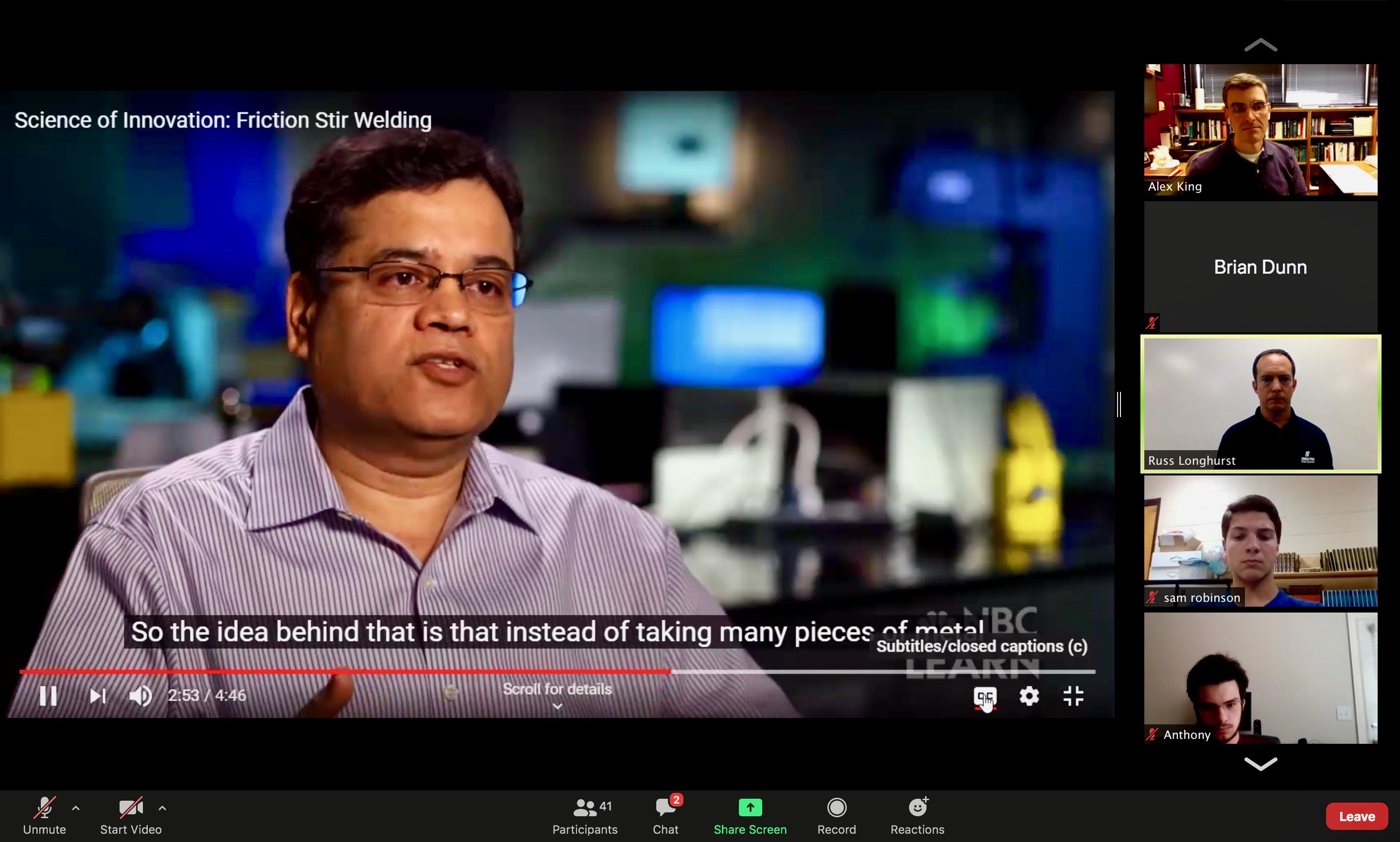
(Posted June 17, 2020)
In a typical year, the Governor’s School for Computational Physics at Austin Peay includes two field trips to renowned nearby science centers.
But this year isn’t typical.
The COVID-19 pandemic canceled those trips to the National Space Science Technology Center and the U.S. Space and Rocket Center in Huntsville, Alabama, and the other to the National Center for Computational Sciences at Oak Ridge National Laboratory.
To give this year’s 37 high-achieving high school Governor’s School students as rich a college experience as possible, APSU’s Dr. B. Alex King invited seven science professors from across campus to give presentations.
“We have scientists from other departments on campus coming in to give a little research talk about the sorts of things happening in their areas,” King said.
The guest lecturers are geosciences Dr. Chris Gentry, geosciences Dr. Kallina Dunkle, engineering Dr. Russ Longhurst, chemistry Dr. Allen Chaparadza, physics Dr. Justin Oelgoetz, astrophysics Dr. Allyn Smith and medical laboratory science Professor Jane Semler.
The guest lectures give the students a peek at other sciences they could study in college.
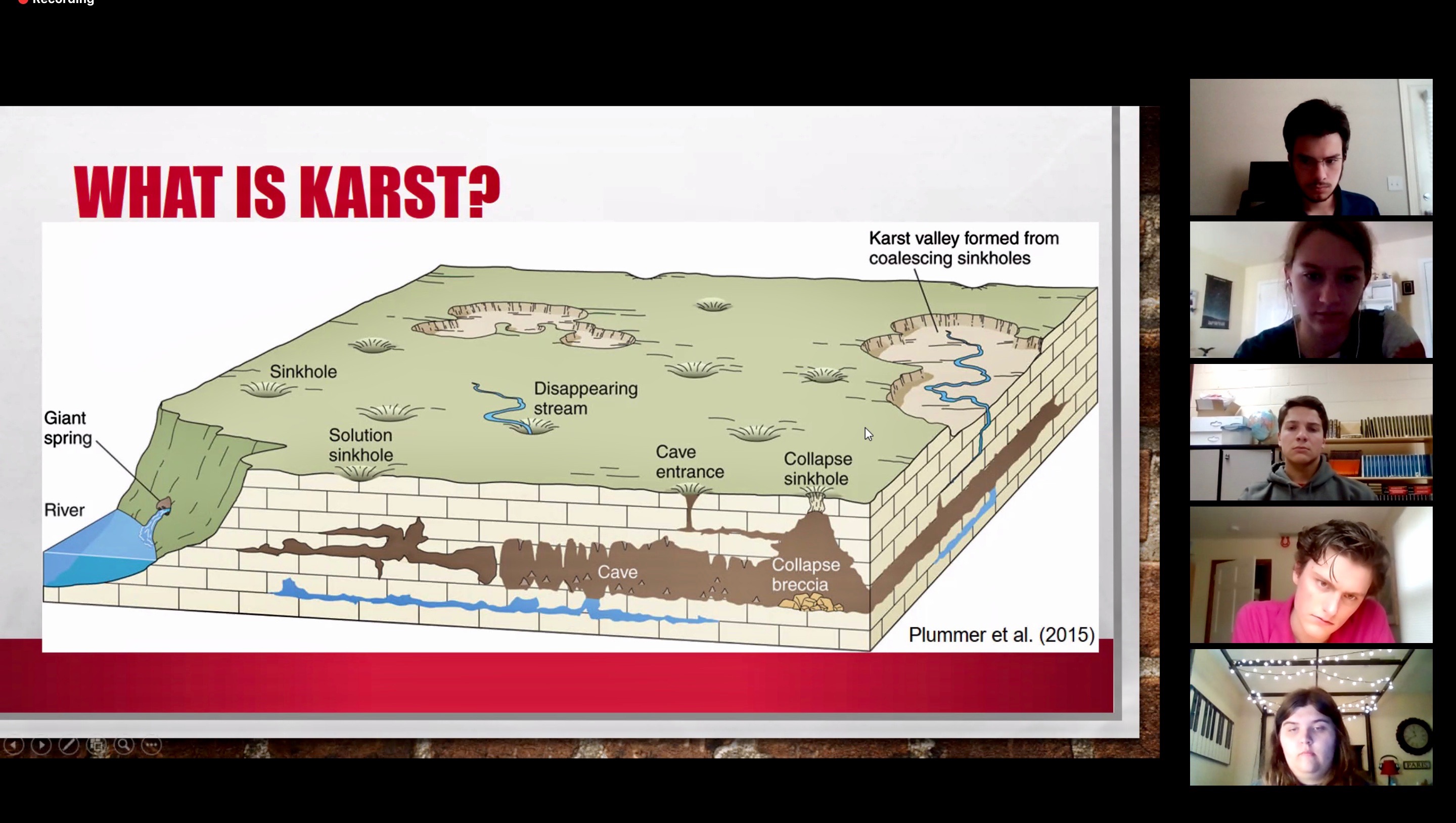
Glaciers, caves and water
For example, Dunkle’s presentation – “Glaciers & Models & Caves, Oh My!” – guided the students through the study of glacial modeling, specifically studies done on the geology left by ancient retreating glaciers in Wisconsin, and karst topography, which is the geology that leads to sinkholes in the Clarksville area.
“What I’m going to be looking at this afternoon is I’ll give you kind of an introduction of how in the world do all of these things fit together into the realm of geosciences,” Dunkle told the class. “I’m on the geology side and my particular area of expertise is in what we call hydrogeology and that has to deal with water.”
Her work focuses on where water comes from and what contamination issues that might present for the water supply. Studying how glaciers and karst topography shape the earth – especially below the surface – helps scientists like her better understand how water travels through the ground.
Engineering, friction and research
Longhurst’s talk – “The Engineering Profession and Engineering Related to Research at APSU” – introduced the students to the different types of engineering and engineering research APSU students are doing.
“Engineering is a very rewarding career and profession, and I encourage you to pursue that path,” Longhurst said. “And a degree in engineering can be applied to many different things outside the profession.”
Two areas of research happening in Austin Peay’s engineering physics program are friction stir welding – a process that uses frictional heat to join materials – and making electromechanical devices, robotics and manufacturing processes more dynamic.
What is Governor’s School?
The state’s Department of Education offers 11 programs to high-achieving juniors and seniors across Tennessee. Topics cover science, the arts, business, technology, humanities, international studies and teaching.
The state provides scholarships to all the students to cover the costs of tuition and, in a typical year, room and board.
Austin Peay provides the Governor’s School for Computational Physics, which is an introduction to computational problems in physics and engineering. The students earn four credit hours – for Physics 2500 and Physics 2501 – by completing the school.
To learn more
- For more about the APSU Department of Physics, Engineering and Astronomy, go to https://www.apsu.edu/physics/.
- For more about the APSU Department of Mathematics and Statistics, go to https://www.apsu.edu/mathematics/.
- For more about Governor’s Schools across the state, visit https://www.tn.gov/education/instruction/tdoe-governors-schools.html.
News Feed
View All News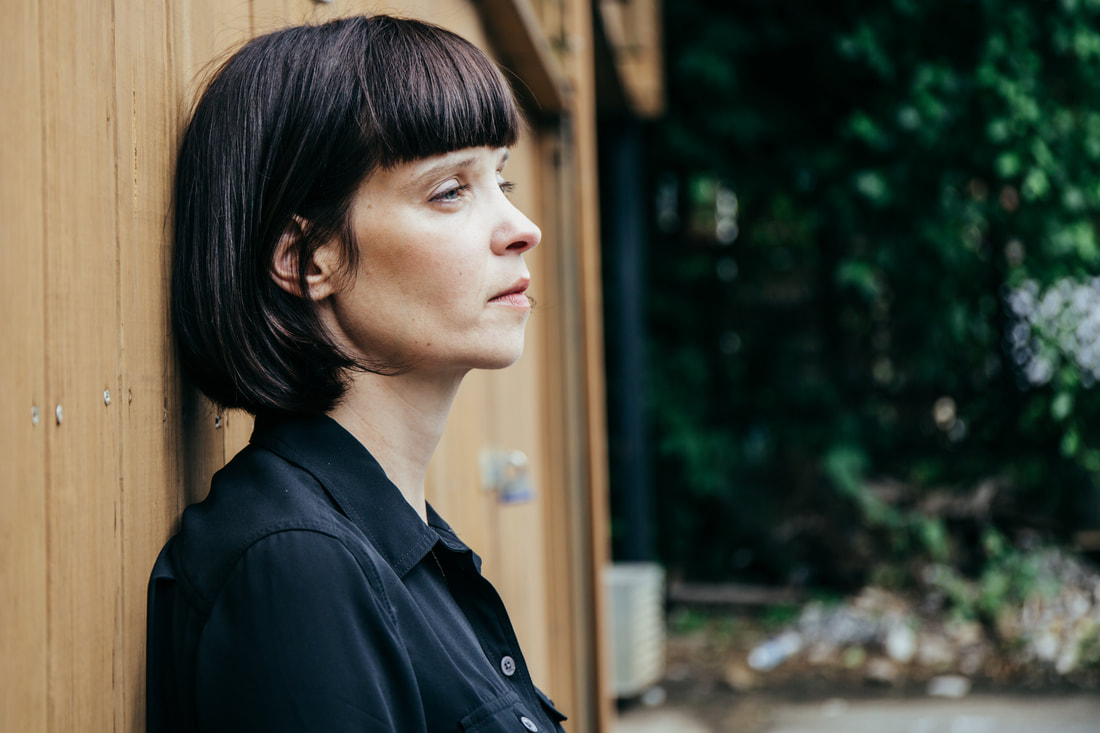
Austin Peay State University's Zone 3 Press, with support from the Center of Excellence for the Creative Arts, is hosting NEA Creative Writing Fellowship recipient and award-winning writer Toni Jensen for a free public reading and book signing at 7 p.m. on Thursday, Feb. 19, in Art + Design Room 120.
Read More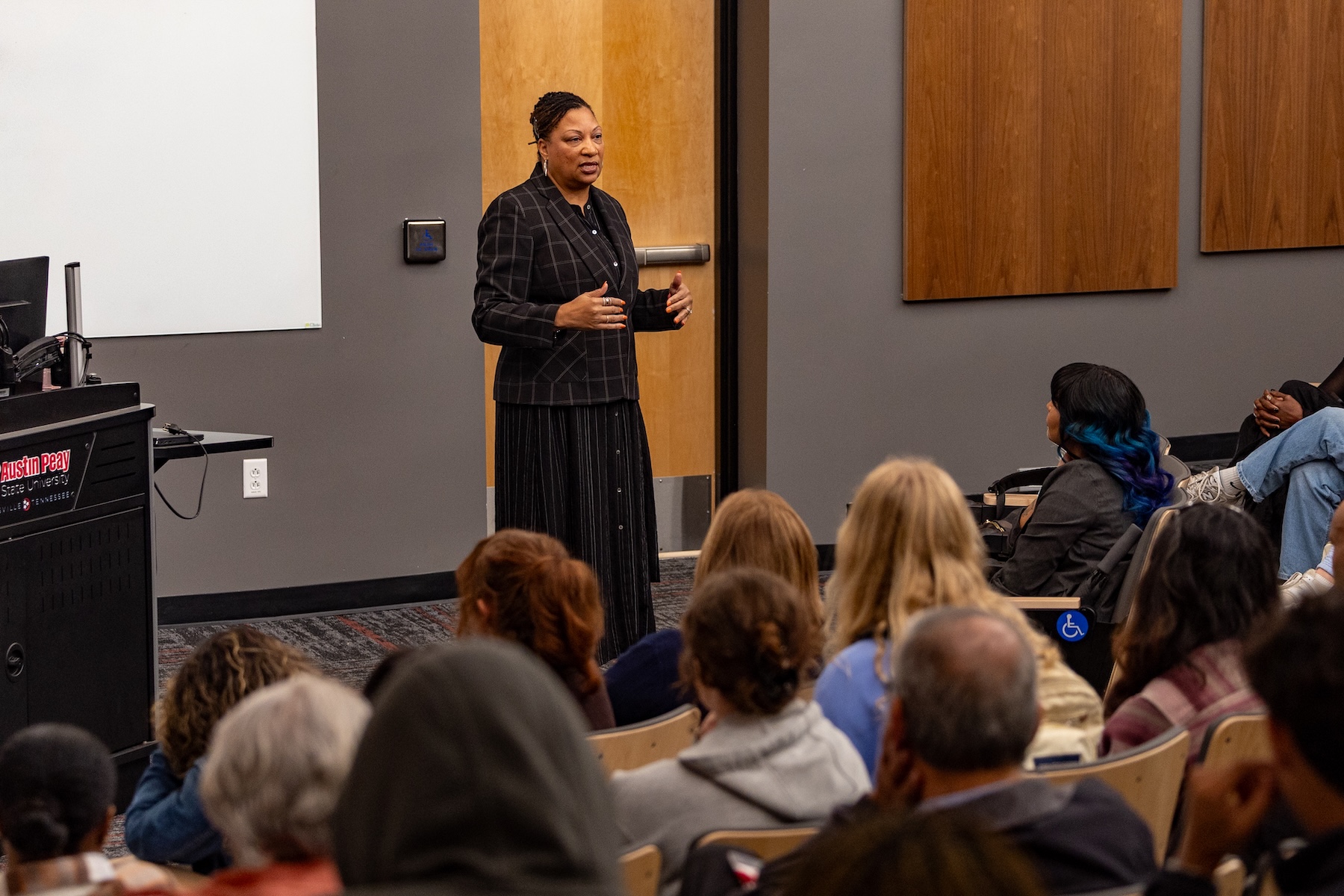
David Hogan of Ribbon Communications and David "Buck" Dellinger of the Clarksville-Montgomery County Economic Development Council (EDC) will share their real-world perspectives on leadership, innovation, and career development during this semester's speaker series.
Read More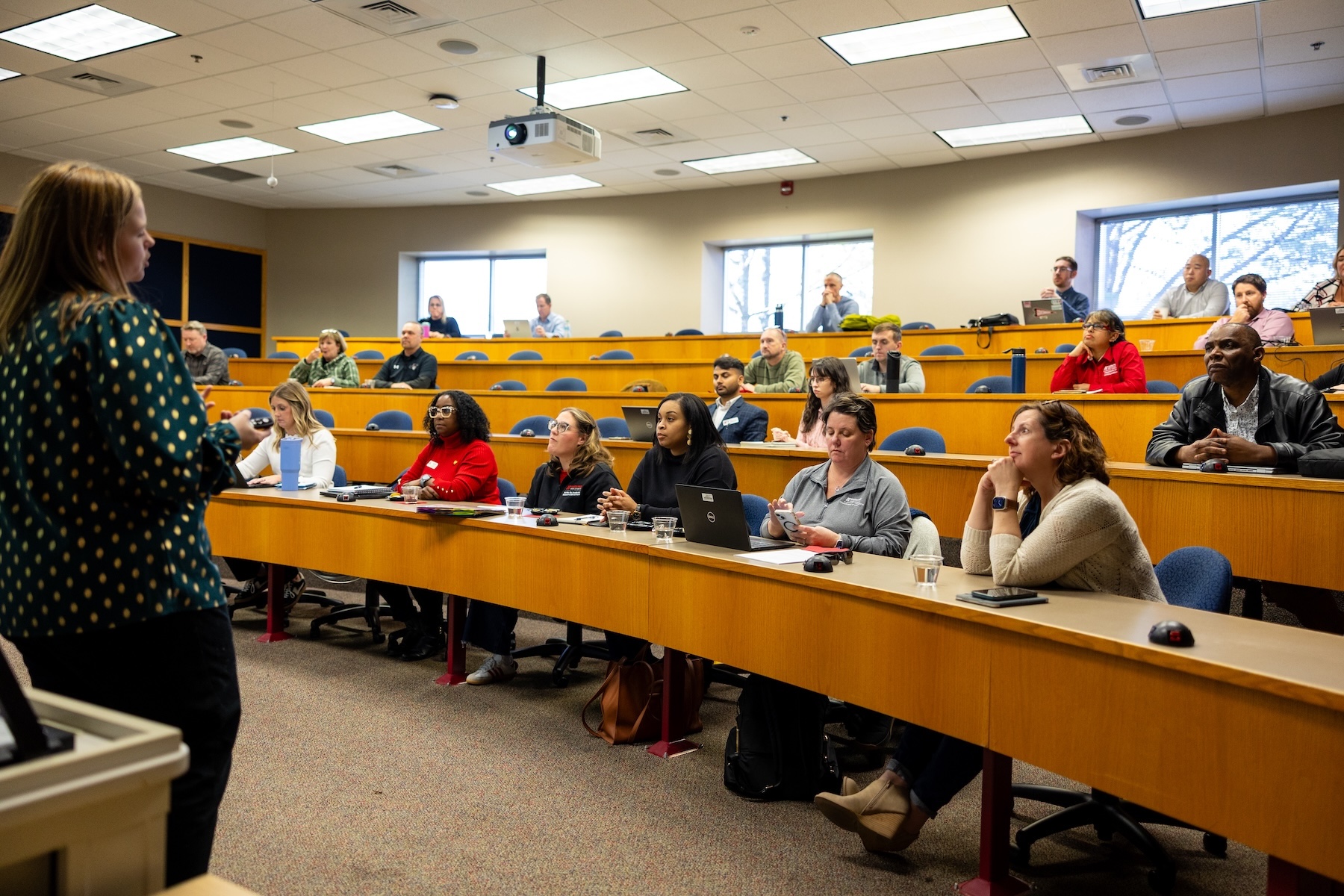
Title III grant funding recently allowed 16 faculty members from across campus to participate in the Career Readiness Academy, an extended workshop series focused on labor market tools, curriculum development, and National Association of Colleges and Employers (NACE) competencies.
Read More